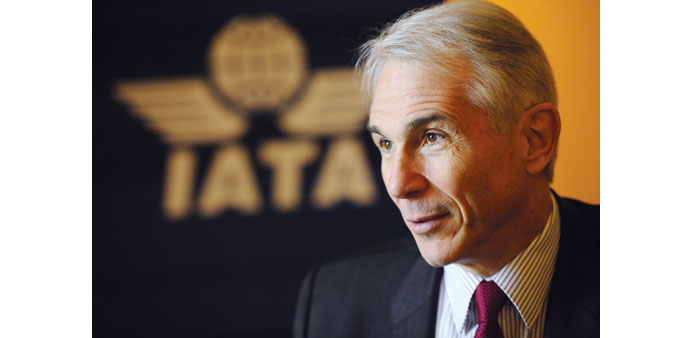“The top priority for the industry is safety — always has been and always will be,” IATA director-general and CEO, Tony Tyler said at the IATA Global Media Day in Geneva.
By Pratap John
Chief Business Reporter
Geneva
A new initiative that will improve the way aircraft are tracked is expected to get going in 2018, according to IATA director-general and CEO, Tony Tyler.
NATII or the Normal Aircraft Tracking Implementation Initiative is being launched by IATA in association with the International Civil Aviation Organisation (ICAO).
Essentially, the purpose of the NATII was to ‘test-drive’ the proposed tracking standard and recommended practices to see if they were fit for the purpose.
“The top priority for the industry is safety — always has been and always will be,” he said at the IATA Global Media Day in Geneva.
“The NATII exercises showed us that it was unrealistic to set a 2016 timeframe, and so it was pushed back to 2018. Regardless of this, many airlines are in the process of equipping and others are making improvements or upgrades to existing tracking capabilities. For me, this is a great example of industry and governments working together to tackle issues with pragmatic measures,” Tyler said.
Aircraft tracking, he said, had been at the top of the industry’s agenda. The loss of Malaysian Airlines MH370 was a shock. Although one piece of the aircraft was found in the Reunion Island, the wreckage has not yet been located.
“And we still don’t know the cause of its disappearance. But early on, the industry recognised that, if a large passenger plane like a Boeing 777 could disappear, we needed to improve the way aircraft are tracked. Alongside safety is security. That we live in a dangerous world is a reality,” he said.
The threat of terrorism is present and active. A new dimension has been added with the movement of foreign terrorist fighters. And the sad reality is that air transport industry — despite being an instrument of peace — continues to be a target.
That was clear in the tragic downing of the Metrojet flight over the Sinai, which, by all accounts, was a heinous terrorist act. And the recent attacks in Paris, Bamako, Beirut and San Bernardino are all affronts to a way of life, for which the freedom to travel and explore our planet are critical elements.
“In the face of these acts and threats, we must be strong,” Tyler said.
According to the IATA chief, terror threat was “constantly evolving”.
“As an industry, we have been very aware of that in our intense work with governments on counter-measures, especially since 9/11. Travellers and crew should be reassured. We have processes in place to keep them out of harm’s way by screening passengers, securing the cargo chain, providing governments with information to vet passengers, and guiding our flightpaths around conflict zones. Governments are our partners in security. Their intelligence is vital in guiding our efforts,” Tyler added.

